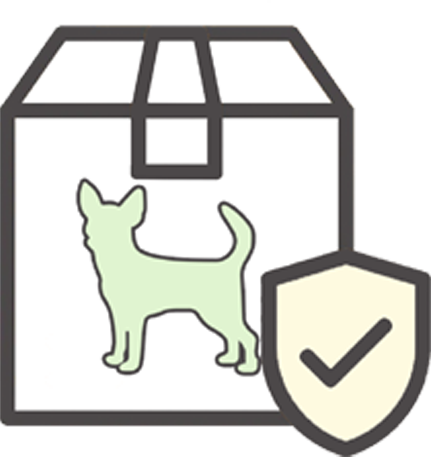Can older dogs be potty trained?
Wednesday, July 31, 2019 09:32:16 AM America/Los_Angeles
It's common knowledge that dogs age faster than humans, but you may be wondering if there are things you should be doing to provide better care for your aging dog. While the majority of breeds enter the senior stage of their lives at age seven, this can vary. In general, smaller dogs age slower than those of a larger size. Certain breeds such as Great Danes also tend to have shorter lifespans than breeds like the Miniature Schnauzer.
As an owner of a dog entering its senior years, you want to know what signs of aging are considered normal, what signs should warrant a trip to your veterinarian's office, and what you'll need to do to prepare yourself and your home for in the coming years. Similar to humans, aging dogs are susceptible to diseases and physical conditions. Kidney disease, for example, can lead to problems related to hydration and will require the use of an indoor dog potty as a backup solution.
Know Your Dog's General Health
One of the best things you can keep in mind as your dog ages is an awareness of its general health. How are your dog's energy levels? Does your dog have any existing physical conditions or problems with walking, food allergies, or destructive behaviors? Did your dog receive housebreaking or behavioral training when it was younger? Knowing your dog's normal demeanor can help you keep alert to any changes that could signal either an underlying health problem or a condition related to the aging process that is in need of special care.
Common Conditions
Some of the more common changes related to aging in dogs include the development of arthritis, decreased energy, loss of sight, loss of hearing, periodontal disease, and the need for fewer calories. You can adjust your dog's diet by switching to a senior formula, which does not contain as many calories as formulas made for adult dogs. Ask your vet for recommendations if you're unsure of which brands or portion sizes to try. If you notice signs of arthritis and decreased energy, also have your dog checked out by your vet. It is possible that your dog may be developing a more serious condition that will require bloodwork and further diagnosis.
Caring for an Older Dog
Besides feeding your dog a modified diet, you may need to purchase stairs to help your dog get on and off furniture. Jumping on and off beds and couches can become more difficult and even dangerous for older dogs with arthritis. Some vets may recommend you start adding small amounts of fish oil or joint supplements to your dog's diet to help combat the effects of the disease. Your vet can also prescribe mild pain medication to help with stiff joints, but it is best to have your pet assessed first. Other conditions such as impaired liver function can impact what supplements and medications are right for your dog.
Incontinence and the need to go outside more frequently can become an issue as your dog ages. Plan on having potty pads in the house in case your dog is unable to make it outside in time. The aging process can lead to the dog "forgetting" or "regressing" on any housebreaking the pet has received in the past. If you do notice that your dog needs to take bathroom breaks more frequently and is drinking more water, make an appointment with your vet. It is possible your dog has developed kidney disease which requires a prescription diet and regular bloodwork.
Not every dog will respond well to an indoor solution with fake grass. Alternative solutions include those with real grass or dog diapers while you're away from home. Dogs with mobility, balance, or sight issues may also need to be kept in a crate while you're away from home. Installing gates on stairwells in the home can help prevent harmful accidents as well.
Additional considerations include continuing to exercise and play with your dog, although you may notice that your dog does not need as much as before. Try taking several shorter walks around your neighborhood to keep your pet as active and mentally stimulated as possible. Consider purchasing a memory foam bed that is specifically designed for older pets or add extra blankets to your pet's existing bed. Finally, keep an eye on your dog's teeth and ensure that you're brushing and cleaning them regularly to help prevent painful inflammation and tooth loss.

